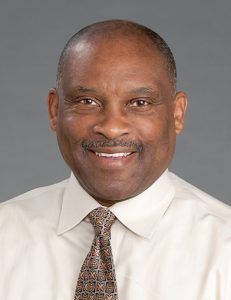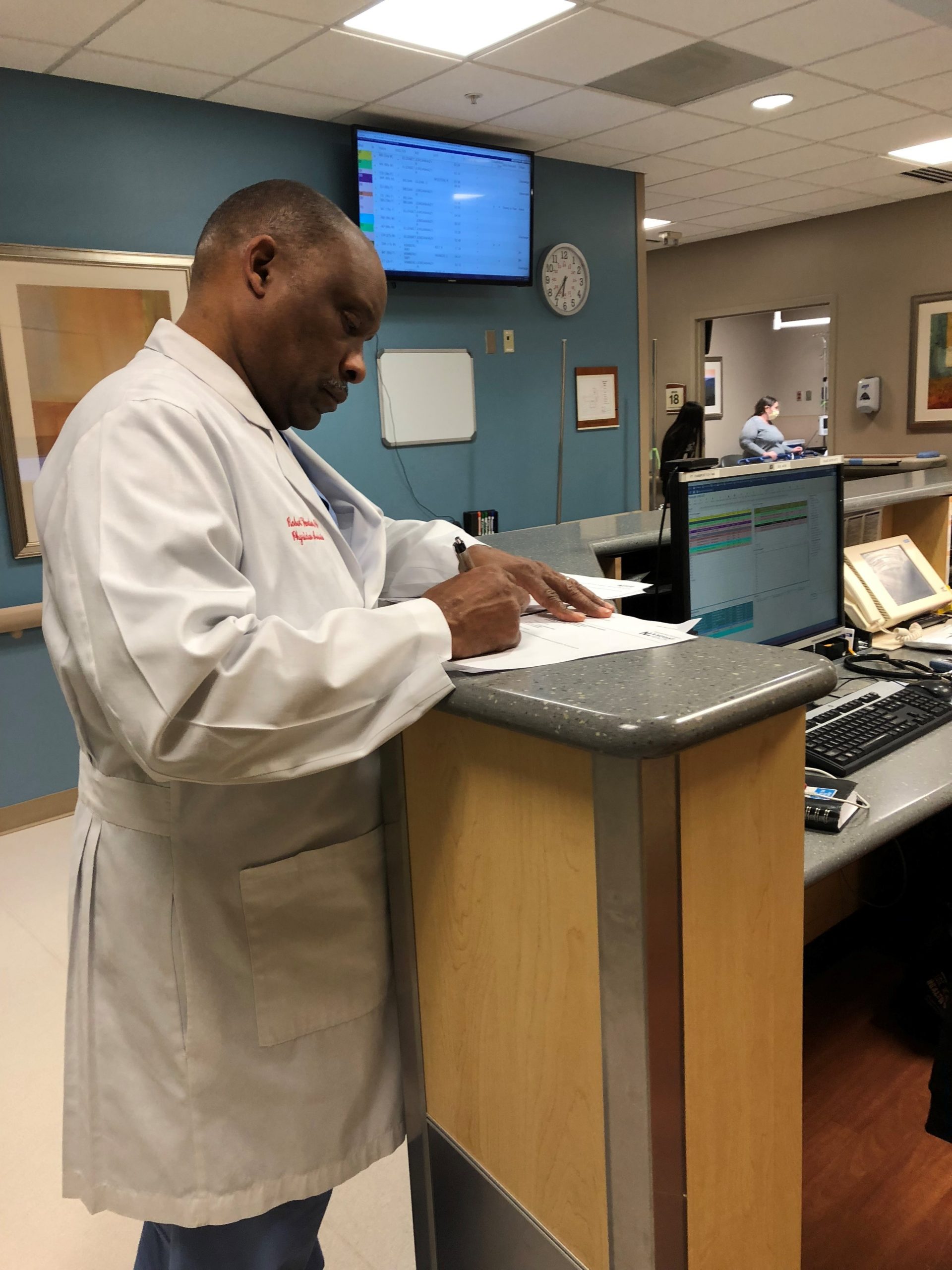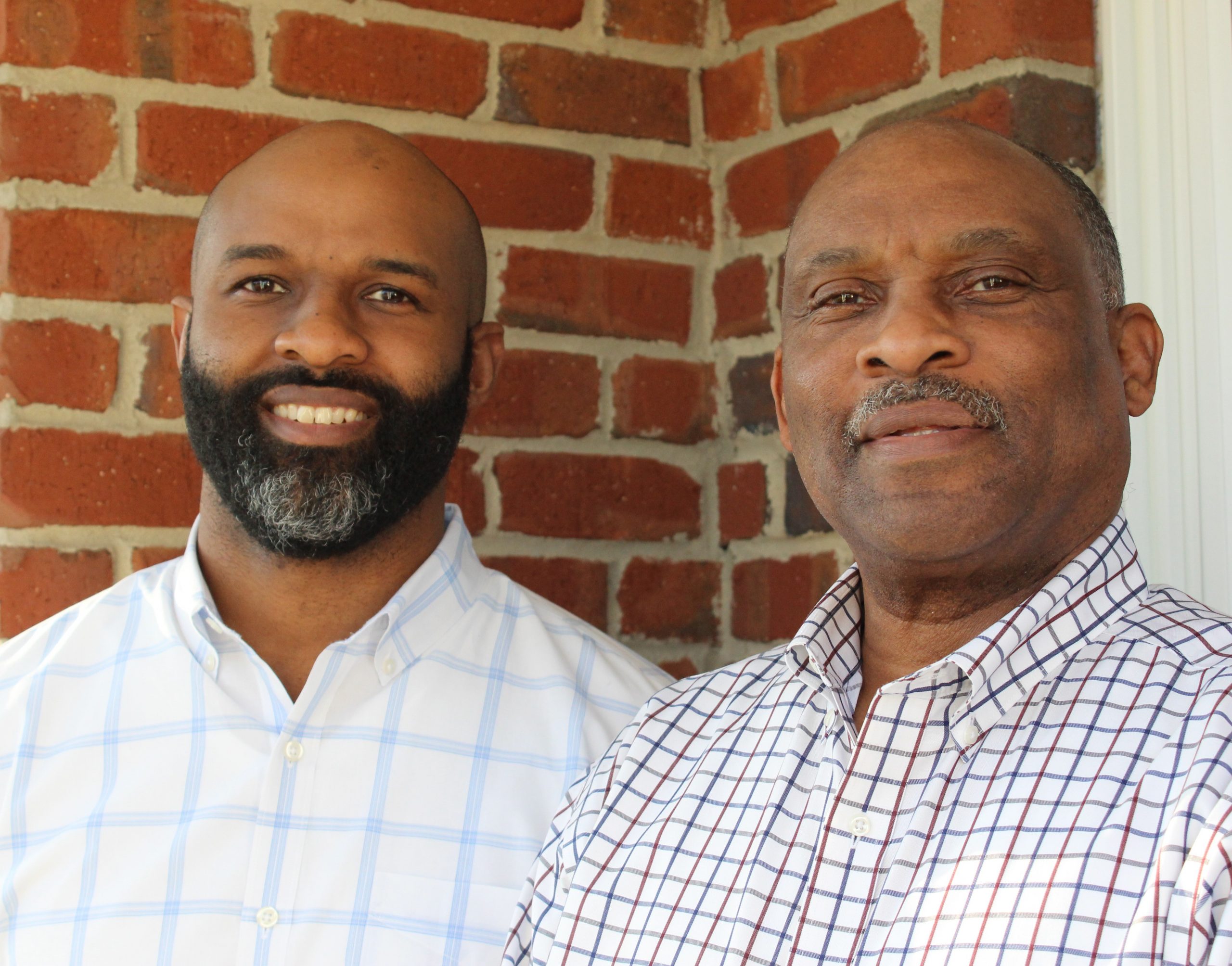DEI Commission Chair Active at Every Level of PA Leadership
Wooten Says to Make a Change, You Step Up
April 8, 2021

Robert Wooten MS, PA-C, DFAAPA, Assistant Professor, Wake Forest School of Medicine, Department of PA Studies, has served in PA leadership positions at both the state and national level, from chairing North Carolina Academy of PAs (NCAPA) committees to serving as AAPA president from 2011 to 2012. His clinical career has spanned a large family medicine practice, the North Carolina health department, and the hospital emergency room. And he has applied both his leadership skills and clinical expertise to academia.
He was recently elected chair of AAPA’s Diversity, Equity and Inclusion (DEI) Commission. Here he talks about his career, how being a PA has changed in the past 40 years, and how he views the work to advance diversity, equity and inclusion within healthcare.
Where have your worked over your 40-year career and how has being a PA changed during that time?
In my first job in Greensboro, North Carolina, I worked in a large family practice. One physician and I covered four hospitals and we had a very large Medicare/Medicaid and no-pay population. I not only learned medicine but learned a lot about the socio-economic environment of the people for whom we provided care.
PA school didn’t prepare me for that practice. I didn’t know I would be teacher, mentor, a father-figure, a preacher, and social worker. People took you into their families because you were their provider and they respected and trusted you. That was the place that I cut my teeth and it set me up for the things that I did in the future.
I also worked for the health department for four years where I ran the STI, TB, and immunization clinics. I also did HIV testing and counseling. I had an administrative role as well as a that of clinician. I did a lot of community work and they were very happy to have me as a PA because they felt that I understood and could relate to their issues. I listened and asked the questions, ‘How can we help you? What can we do to make things better for you?’

In addition to being on the Wake Forest faculty, I serve as director of PA/NP services for Forsyth Emergency Services PA. I work at Forsyth Medical Center Emergency Department in Winston-Salem, North Carolina and have been there for 30 years. Over the years I have served on committees, worked to recruit and hire PAs, and precepted students.
I have been an educator at Wake Forest School of Medicine Department of PA Studies for 15 years. My youngest son Aaron is also a PA. He went to Wake Forest and graduated two years ago. We would laugh because he said, ‘I don’t know whether I should call you Dad or professor.’ He is currently working in orthopaedics and enjoying it.
The PA world has changed a lot in 40 years. PAs are much more recognized and at the table than we used to be. PAs’ opinions are now sought out for a variety of issues, whether relating to actual clinical practice, legislative issues, research, or nonclinical opinions. There are PAs presently in hospital administration and working to improve the care for the patients that we serve. When I came out of PA school, we spent a whole lot of time telling people what a PA was. PAs now are more established and better known and are practicing in all medical specialties and venues. PAs have become respected members of the healthcare team. We’ve proven we’re here; we care about people and that our job is to give the best possible care.
What do you suggest individual PAs do to become better allies of their colleagues from underrepresented groups?
I think that having discussions and learning about the social determinants of health are important. Recognizing and educating oneself about one’s own implicit bias will help improve the care provided. I think it’s important that PAs speak out against health inequities and work to correct them. I believe that is imperative that we have open and honest dialogue if we are going to progress and make a difference.
You have been active at every level of PA leadership in Constituent Organizations, committees, and AAPA. Did you actively seek out volunteer leadership opportunities or did they organically come to you?

When I came out of PA school, I wasn’t involved because at the time I didn’t think that organizations really cared and certainly I didn’t think that they cared about people of color. I had a PA who was a friend and she invited me to a meeting of NCAPA. She said, ‘You have lots of opinions, but you just need to come to the meeting.’ I went and talked and gave some opinions. And suddenly I was on the public education committee.
One thing led to another. I was then asked to run for the NCAPA board of directors, and then at some point I was asked to run for president. While I was serving on NCAPA, AAPA reached out and asked if I would serve on a peer-to-peer committee. I did that for years and then that’s how I got into running for secretary of the AAPA Board. I ran for AAPA president three to four times, so it wasn’t an immediate thing. I started to give up after the second or third time, and said, ‘They really don’t want me so why am I going to continue to bang my head.’ But a group of PAs called me and said, “You need to continue; we’re going to campaign for you’.
[Grow your network, find a mentor, and more – join or renew your membership today]
I got elected. That was a great moment for me and actually it was history because I was the first African American president of the AAPA. I sought out some opportunities and after having served in different positions, I was asked or recommended by others to serve in multiple capacities.
Do you feel the AAPA’s and the profession’s renewed commitment to diversity, equity, and inclusion is important right now at this moment in history?
I think it’s very important. It has always been important but unfortunately it took some recent major incidents and the death of someone to have everyone refocus and to understand that there are needs that have to be met in addition to ideas that need to be changed. We must begin to understand that we live in a diverse society and that we take care of diverse patients. We need to have people in our profession who represent the diversity of the people that we take care of.
I’m happy to see what’s been going on. At times I am a little bit skeptical because we start a lot of things and don’t finish them, and things get put on the back burner, the box gets checked and then we move along. So, I am hoping that with the renewed effort and people continuing to voice their concerns, and have open dialogue, we will be able to accomplish what needs to be done.
How do you think your experience as a PA leader and an AAPA leader prepared you for the role of Chair for AAPA’s Diversity, Equity, and Inclusion Commission?
Having served in various roles, interacting with different people, and different leaders, I’ve learned a lot about leadership. These skills will serve me well as the chair the Commission. The Commission is comprised of strong accomplished leaders who are dedicated to making a positive difference.
When I was asked by the African Heritage PA Caucus to serve as their representative to the Commission, I was really happy about that. Little did I know I was going to serve as the chair of the Commission. We’re not going to change things overnight. It’s going to take time. We are committed to doing the work that it takes to bring about positive change.
The Commission is very diverse, made up of leaders of AAPA Constituent Organizations and our sister organizations. With the many views and opinions, what is the unifying theme for all individuals that unites you?
DEI is an ongoing overarching goal as part of the AAPA strategic plan. The members of the Commission are committed to embracing the principles of diversity, equity and inclusion.
The Commission is currently undertaking a significant project to review all existing AAPA policy on health equity to identify gaps and opportunities in creating potential resolutions for HOD discussion in 2021. Why do you feel this work is important? How is that work going and have there been any surprises or revelations?
The resolutions are just one part of it, but they are important because they represent the fabric of the organization. We have to look at all the resolutions and make sure they reflect DEI and that we’re talking about them.
My hope is that we’re not just checking boxes and saying ‘Ok, we’ll check these and that’s the end of it.’ This should be an ongoing evaluation of ourselves as an organization in an effort to make sure that we’re promoting DEI and empowering, encouraging and supporting all the PAs.
The DEI Commission has just begun its work. We know that there is a lot ahead of us. We’re going to be looking at many different aspects of AAPA, not only policies and procedures, but other things. It’s a Commission committed to its charges and committed to making AAPA strong. The members of the Commission are dedicated, and I thank them for their service. We’re going to do the best that we can to make sure that we fulfill our responsibilities.
You May Also Like
DEI Resource Center
AAPA Reflects on Martin Luther King Jr. Day 2021
Thank you for reading AAPA’s News Central
You have 2 articles left this month. Create a free account to read more stories, or become a member for more access to exclusive benefits! Already have an account? Log in.



